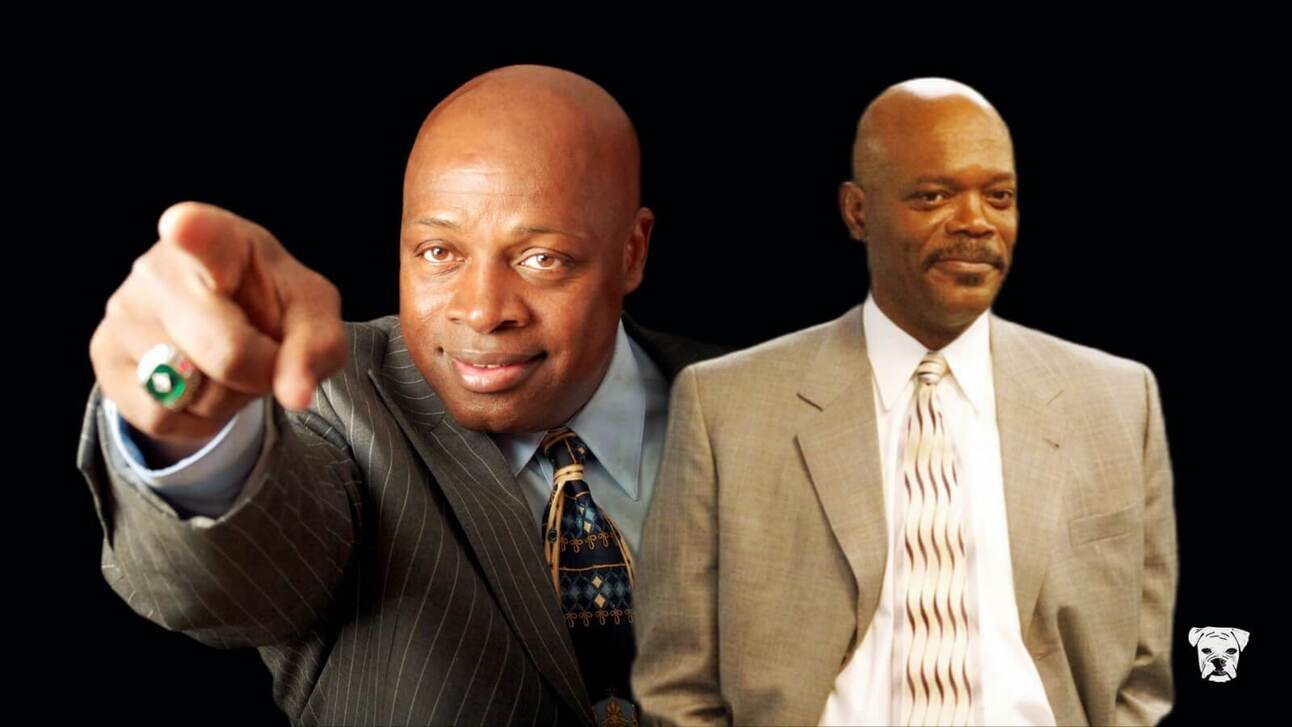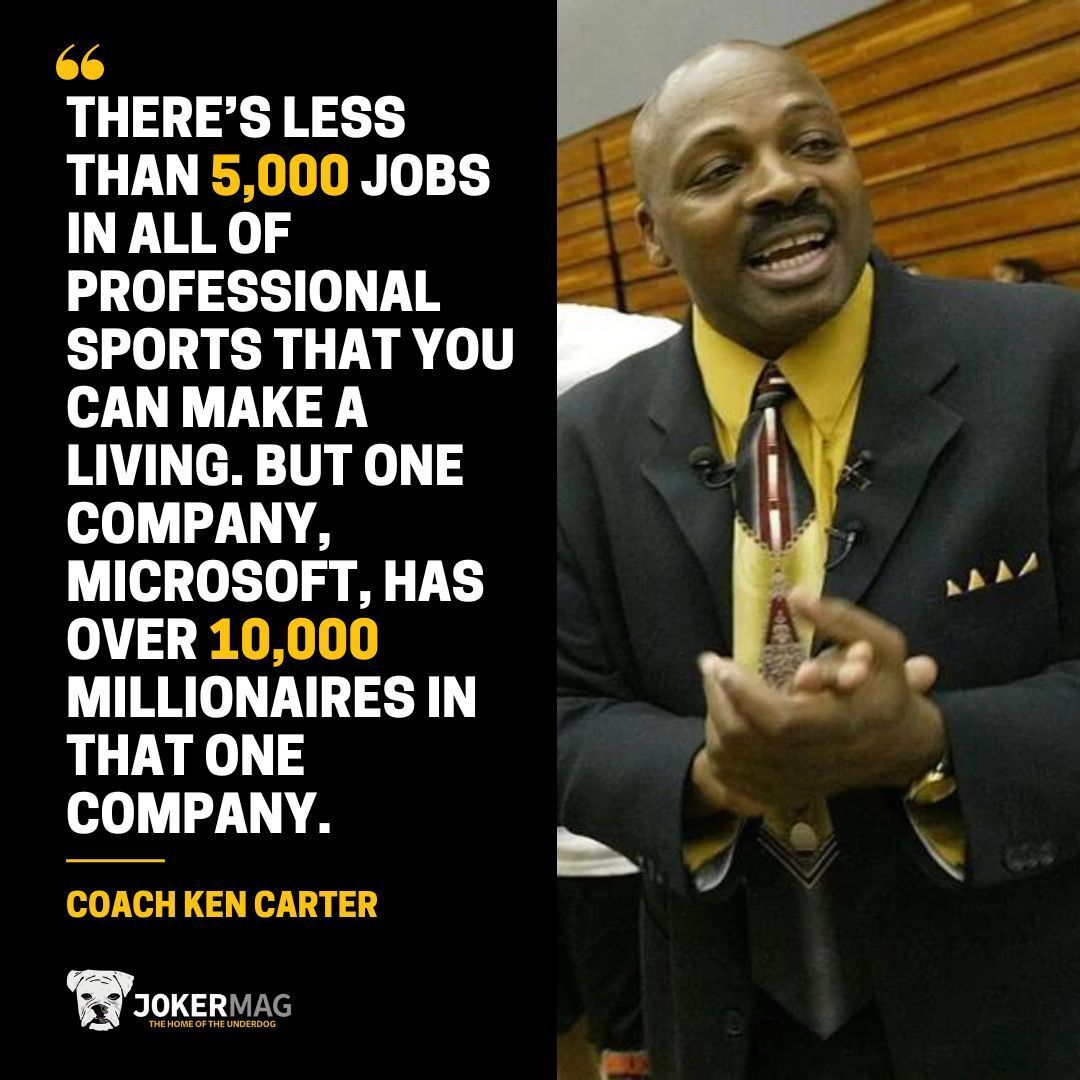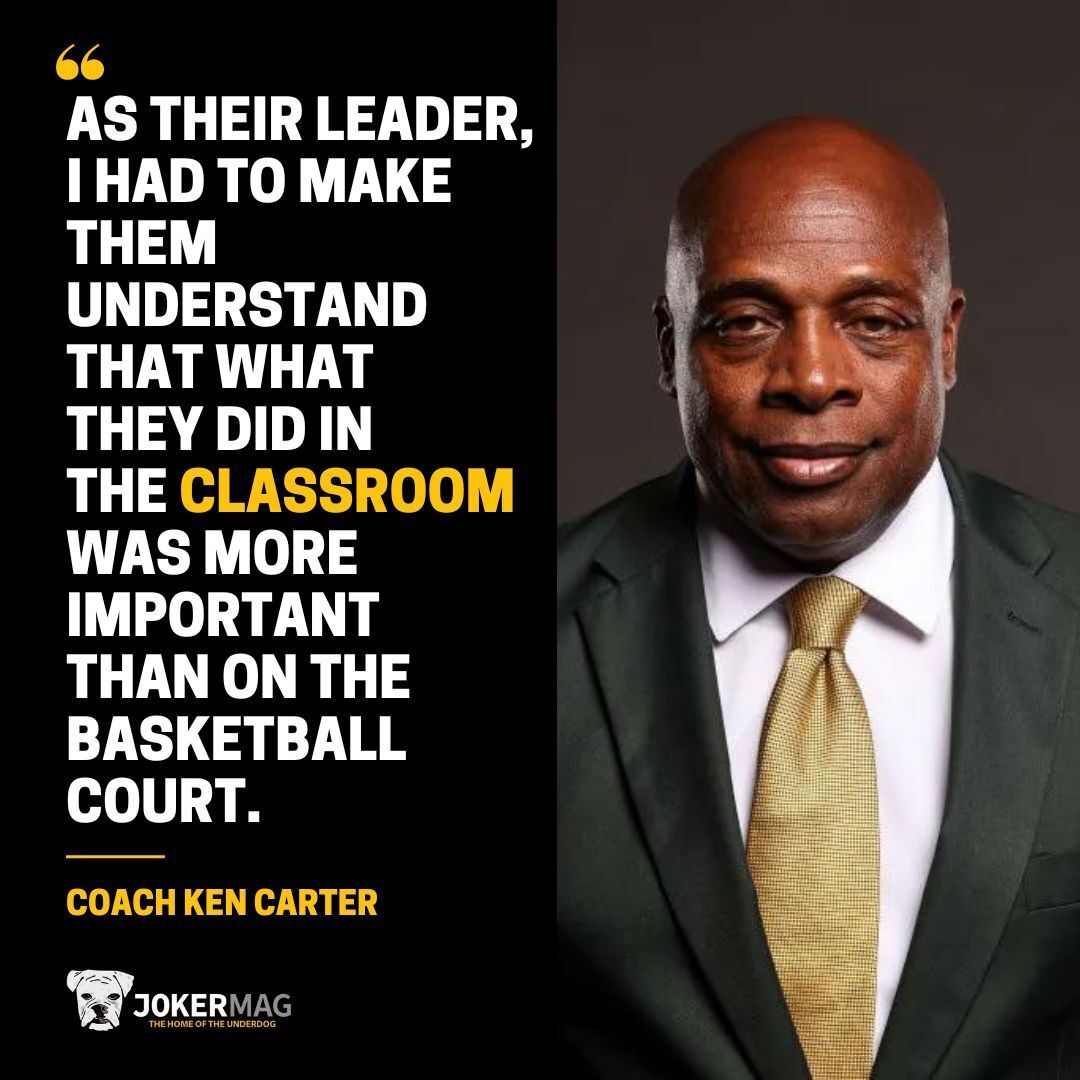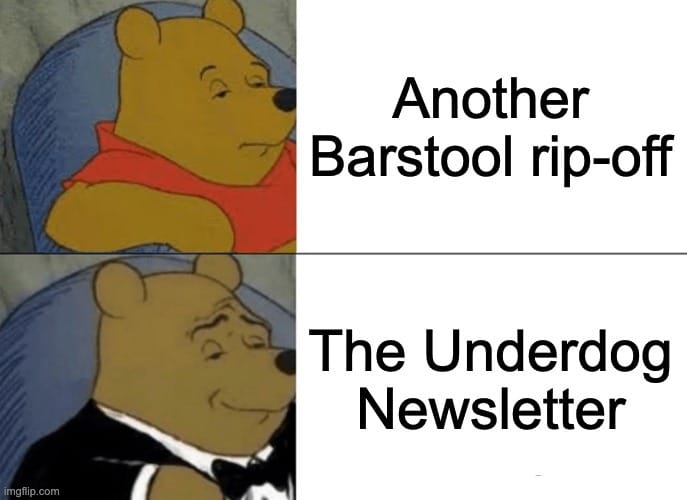Good morning and welcome back!
In today’s email: the true story behind a popular sports movie.
While the producers took some liberties, the heart of the film is grounded in reality.
Rare for Hollywood today.
And that’s because the real man behind the film is just as remarkable as the actor who portrayed him.
Let’s dive in 👇
UNDERDOG TRIVIA 🤔
On this day in 1983: Triple-A's Louisville Redbirds became the first minor league team to do what?
Just click the choice you think & the correct answer will be shown.
Before we dive in, I need to tell you about this week’s awesome sponsor: Red Beard Sailing
Sail Anytime, Anywhere — From Bag to Boat!
What if you could transform any body of water into your own personal playground? All without the hassle of bulky trailers or expensive boat slips?
With Red Beard Sailing’s inflatable sailboats, now you can!
Their compact, portable sailboats fit into a bag.
Imagine no more towing or storage constraints. Just pure, unfiltered fun on the water.
Exclusive Offer: Get FREE shipping on inflatable catamaran sailboats and watercraft for our readers in the lower 48 states.
Thank you for supporting our sponsors! They help me keep The Underdog Newsletter free ♡
The True Story Behind The Real Coach Carter
No time to read now? Click here to save it for later 🐶
At some point in their career, most basketball coaches have found themselves in a dimly lit, old-school gym with creaky floorboards.
Challenged by an individual or a team of kids who feel they know better and can do better.
Dealing with real-life issues that impact how their team or players perform on the court.
Ken Carter used a unique method for dealing with these situations, helping a group of students look past the basketball court into their future.
In 2005, Samuel Jackson portrayed Ken Carter, the head coach of his hometown Richmond Oilers, a Northern California high school basketball team.
While producers did take some liberties in making the Coach Carter movie in order to make the story a bit more fan-friendly, it's important to understand who Ken Carter really was before Hollywood got to him.
Born and raised in Fernwood, Mississippi, Carter’s parents set the tone for how he and his eight siblings approached life, with a strong enforcement of academics before play.
With a passion for hoops and baseball, Carter suited up for the Richmond Oilers from 1973 to 1977 and set team records for points, assists, and steals before becoming a high school All-American.
After averaging 23.3 points during his senior season, Carter attended San Francisco State University and Contra Costa Community College, where he helped the Comets reach the Bay Valley Conference championships.
Producing an average of 14 points, 5 assists, and 5 steals, his all-around game attracted Sam Willard, head coach of the George Fox Bruins.
Although he spent just a year and a half at the Oregon-based University, it was there that Carter learned a valuable off-court lesson from his business class instructor, Roger Crabbs.
“Dr. Crabbs told us, 'You can make a living working for someone else, but you can create a lifestyle if you own your own business,'" Carter said.
“Dr. Crabbs helped me develop a different way of thinking, and once you change someone’s vision of the world, he is never the same.”
Following his time in Oregon, Carter returned home to Richmond, looking to translate his studies into the real world.
In a short time, the former basketball star opened a trio of businesses in his home community:
A sporting goods store
A barbershop
A hair salon
Although he was passionate about business, the court was still his true love.
Taking up the head coaching role of the Oilers in 1997, Carter implemented a unique blend of his personal values – ones that his parents instilled and lessons he had learned throughout his high school and college playing days.
With a year of coaching under his belt, Carter turned the high school basketball world upside down in 1998 when his team failed to meet the standards he'd set.
While many of these rules are familiar to most coaches in the basketball community, the low-income, high-crime area of Richmond, California led Carter to implement policies that focused on his players not only succeeding on the basketball court but more importantly in life.
During the late 90s, Richmond’s ratings on the state’s Academic Performance Index sat at 1 out of 10, the second lowest of all the public schools in the Bay Area.
With only 50% of the students graduating, only 6% would move on to attend college and 80% would spend time in jail.
As per Carter’s rules, all players (which included his son, Damien) on the three Oilers basketball teams were required to sign a contract agreeing to the following:
Address teachers/staff as “sir” or “madam”
Attend all classes and sit in the front row
Maintain a 2.3 grade point average (district rules stated 2.0)
Wear a shirt and tie on game days
But don’t think that Carter himself was exempt from committing to the players off the court as he had his own stipulation.
Should a player not receive an academic or athletic college scholarship offer, Carter would pay for his post-secondary fees.
Wanting to prove to his players that although you can be successful as an athlete, education provided more opportunities, Carter took his players on field trips to high-tech firms in Silicon Valley.
“There’s less than 5,000 jobs in all of professional sports that you can make a living,” Carter told Christianity Today.
“But one company, Microsoft, has over 10,000 millionaires in that one company.”
Carter’s ‘98 team came out of the gates strong with a 13-0 record but soon found themselves facing their biggest challenge: themselves.
Despite being one of the best teams in the state, Carter stuck to his guns as several players (15 of the 45 players on the three boys' teams) did not meet his GPA standards.
Backed by Principal Haidee Foust-Whitmore, Coach Carter implemented a “lockout” for the remainder of the season, stopping any further practices or games until the players improved their grades.
One week after his announcement, Carter placed a padlock on the gym doors, shutting out the varsity, junior varsity, and freshman players, an act that brought a lot of criticism and negative feedback from the community.
Despite the controversial move, Carter remained adamant that basketball was a privilege, not a right, and that education should be the priority.
"As their leader, I had to make them understand that what they did in the classroom was more important than on the basketball court."
Standing by his decision, Carter’s actions made the national news, drawing the attention and support of then-Califonia governor Gray Davis.
While the lock was later removed from the doors for PE class and other sports to access the gym, Carter had made his point clear.
It wasn't just the state’s governor that took an interest in Carter’s actions.
Major media outlets like the LA Times, USA Today, Sports Illustrated, People, CNN, and The Today Show all sought an interview with the head coach.
Harvard University later named him Educator of the Year.
With the support of their peers and school staff, the players managed to get themselves back on course academically, missing just two games during the imposed lockout.
After the first week, the Oilers varsity team returned to play its scheduled games, both of which they won. But they did not practice.
Carter and the Oilers managed to advance to the second round of the state tournament before their season officially came to an end.
While their high school basketball dreams may have been cut short, Carter’s academic rules helped not only the players on the 1998 team graduate but every player that he coached during his five-year tenure.
“I believe there are three things you need to do to change a person – put something in their hand (a contract), put something in their head (knowledge), and touch their heart,” Carter said.
“The kids I was dealing with were inner-city kids and most were coming from single-parent homes. We exposed them to the real world of business, taking them on trips to Silicon Valley. We planted ideas in their heads. We encouraged them to think big and dream big.”
Ken Carter is not the only coach in the history of amateur sports who has set out rules and guidelines for their players to succeed on and off the court, field, or ice.
But what the popular 2005 film did was shine a light, directly or indirectly, on how much coaches are willing to give and do for those who look up to them, as mentors and parental figures.
No longer a coach on the court, Ken Carter has since traded his clipboard and whistle for a mic and a pen.
In addition to owning and operating Prime Time Publishing and Prime Time Sports Marketing, Carter also serves as a motivational speaker and has written two books, one detailing his life growing up and a self-help book.
In 2009, he founded the Coach Carter Impact Academy boarding school, a high school program for 150 students in Marlin, Texas.
"People talk about finding a better life," he wrote in his book, "but you first must find a better minute and then a better hour and then a better day and a better week and a better month on up to a better year."
"It is a process that does not happen rapidly. There are incremental steps that lead to overall growth."
🐶
Today’s story was written by our pal in the north, Steve Lee. If you’ve got a friend who’d enjoy this one, why not share it with them?
Here are two other stories you might also like:
What did you think of today’s story? Vote in the 1.47-second poll below 👇
How would you rate this edition?
Your feedback helps me make this newsletter better every week. Thanks in advance!
Tune in next week for another inspiring story (which I haven’t decided on just yet 🤔)
Til next time,
Tyler

Extra Innings…
👀 In case you missed it: How Jimmy Buckets went from coach-surfing teen to NBA superstar.
🏈 “You haven’t seen anything yet.” Broncos WR Tim Patrick missed the past two seasons with freak leg injuries. He just caught his first touchdown pass in 973 days.
😮 This happened: Blue Jays utilityman Ernie Clements just homered on a pitch at his eyes, and now I want to know everything about his story.
Love The Underdog Newsletter? Here are 3 easy ways you can help our stories reach more people:
Tell a friend or family member to subscribe ($0)
Make a one-time donation to become an Underdog MVP for life ($1+)
Buy a piece of Underdog Mentality merchandise – I’ve got coffee mugs, t-shirts, and even baby onesies for your little one ($12+)






